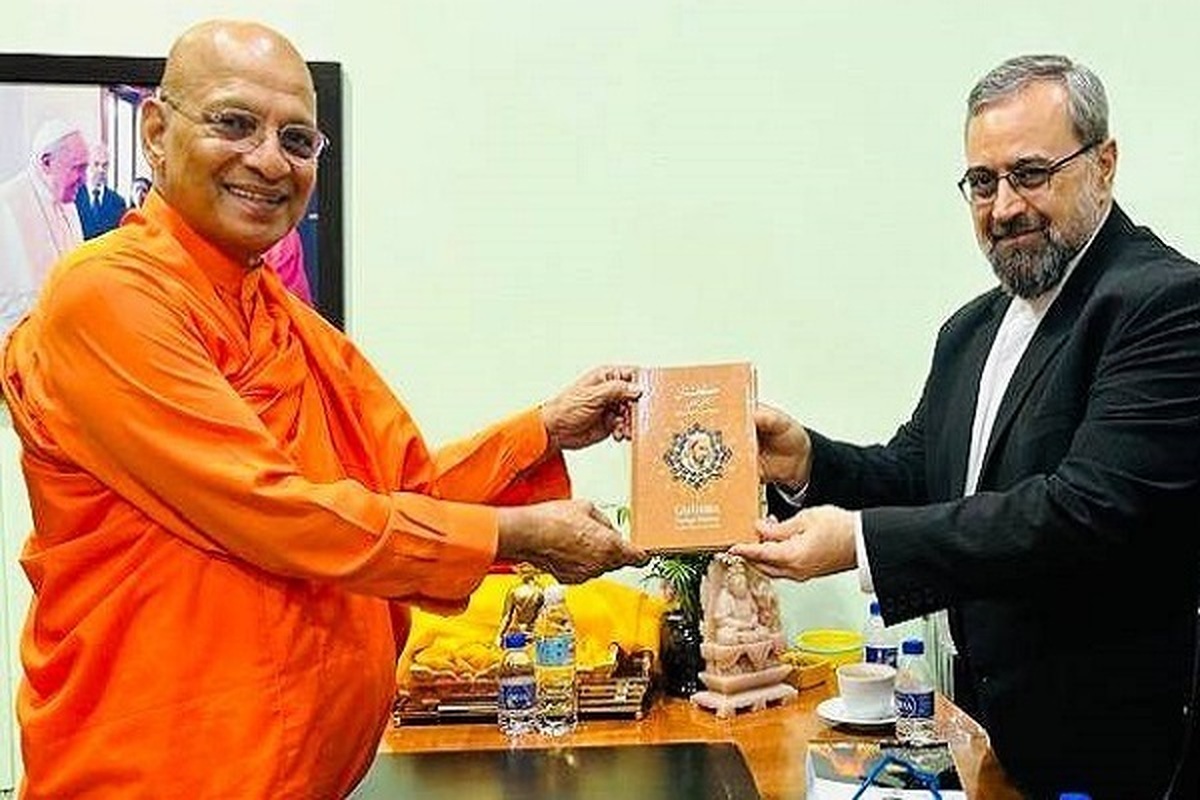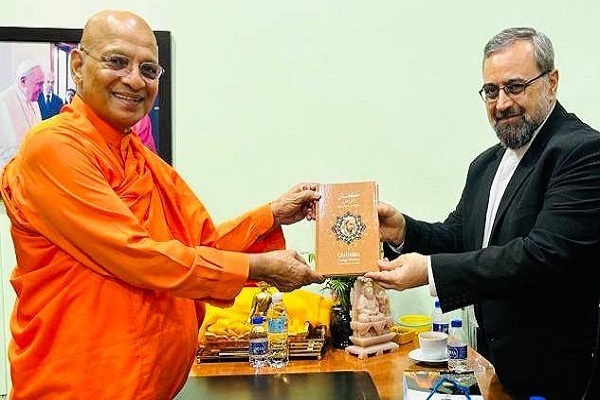Malay Translation of Saadi’s Golestan Presented to Malaysia’s Buddhist Leader


Habib Reza Arzani met and held talks with K. Sri Dhammaratana on Sunday.
Stating that Iran is also a country diverse in terms of ethnicity and religion, he said although the majority of Iran’s people are Muslim, various ethnic groups and religions live together in peace and mutual understanding, and this coexistence is rooted in the ancient history and rich culture of Iran.
He referred to the official presence of religious representatives in the Iranian parliament, and said representatives of religious minorities from different provinces participate in the legislative process, and all Iranian citizens are equal before the law.
The cultural attaché also pointed to the freedom of religions in the Islamic Republic of Iran and said all religions in Iran can educate their children based on the teachings of their sacred texts and even in the languages of those texts, such as Hebrew.
The leader of Malaysian Buddhists welcomed Arzani warmly and wished him, as well as all the people of Iran and the world, happiness and success.
Referring to Malaysia’s status as a multicultural and harmonious country, he emphasized that followers of different religions live together with mutual respect and without religious conflicts.
Referring to the status of Buddhism in Malaysia, he said Buddhism constitutes the second largest religious community in Malaysia after Islam, with approximately 300 to 400 Buddhist monks active in the country.
Some of them engage in meditation in peaceful forest settings, while others teach Buddha’s teachings in cities and villages, he noted.
Dhammaratana added, “To effectively connect with the younger generation, we need to update our methods and utilize modern educational tools. On the other hand, the lack of familiarity with English and local languages among some monks has made communication with the community challenging.”
At the end of this meeting, Arzani invited the Buddhist leader to participate in seminars and interfaith dialogue programs organized by the Islamic Culture and Relations Organization.
Emphasizing the importance of exchanging religious and cultural experiences, he regarded the presence of religious leaders from various countries as a significant step toward enhancing mutual understanding, peace, and peaceful coexistence among religions in today’s world.
He also gifted a copy of a Malay translation of Saadi’s Golestan to Dhammaratana.
Today is the first day of the Persian calendar month of Ordibehesht, which is celebrated as the Day of Saadi in Iran.
Read More:
Abu Muhammad Muslih al-Din bin Abdallah Shirazi, better known by his pen name Saadi, was a major Persian poet and prose writer of the medieval period.
Saadi (1200-1292 AD) is recognized for the quality of his writings and for the depth of his social and moral thoughts.
His best known works are the Bostan (The Orchard) and the Golestan (The Rose Garden). The Bostan is entirely in verse (epic meter) and consists of stories aptly illustrating the standard virtues recommended to Muslims (justice, liberality, modesty, contentment) as well as of reflections on the behavior of dervishes and their ecstatic practices. The Golestan is mainly in prose and contains stories and personal anecdotes.
4277558



